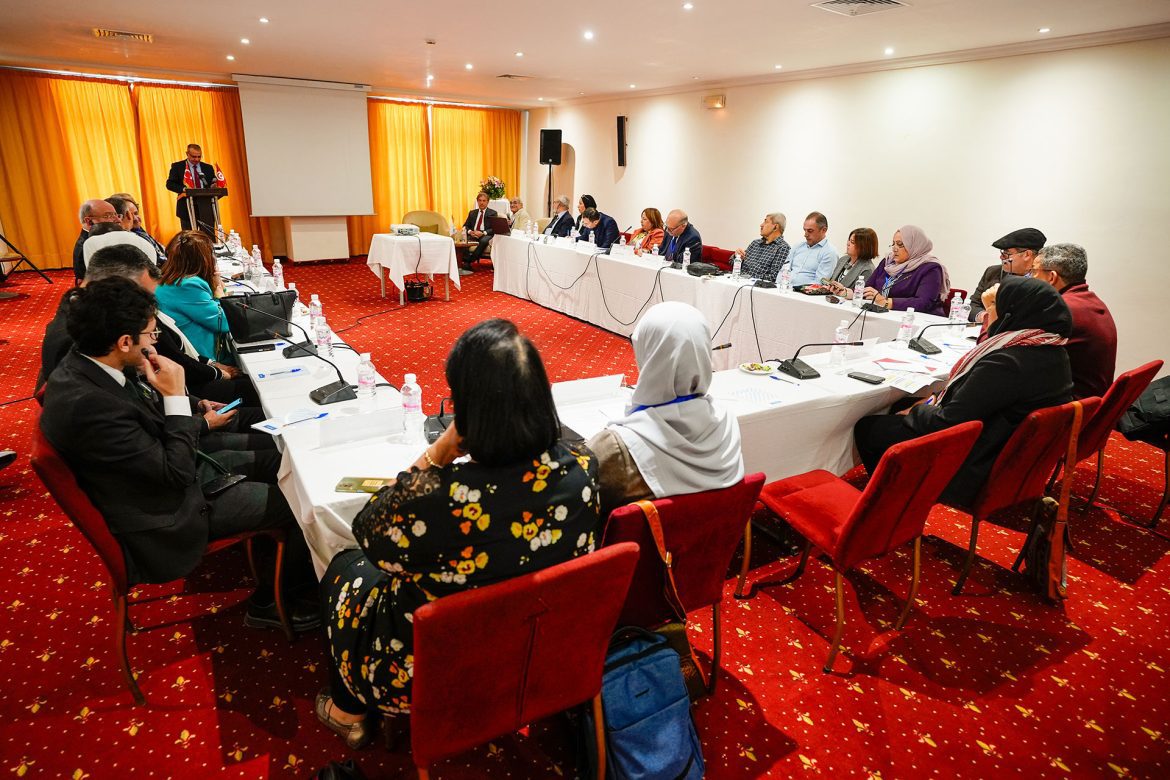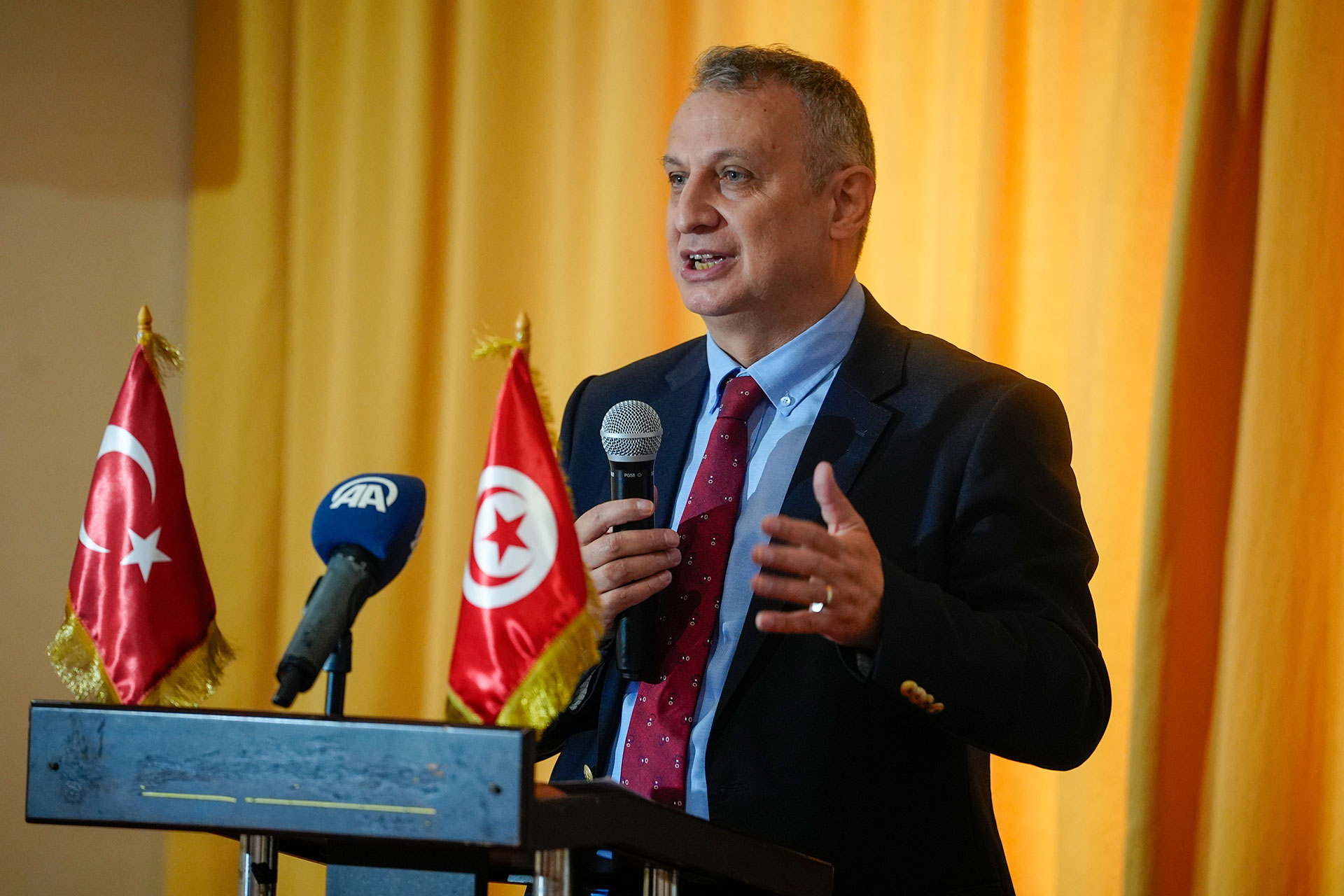New research results were presented and the progress of studies, sources, and methods was appraised during the conference on “Ottoman Heritage in the Maghreb” organized by the Tunisian Association of Urban Studies and Research (ATERU) and IRCICA in Hammamet, Tunisia. Opened on 20 November with the speeches of Prof. Cengiz Tomar, Head of Research and Publications, on behalf of the Director General of IRCICA, Prof. Taoufik Belhareth, President of ATERU, and the Ambassador of Türkiye in Tunisia Mr. Ahmet Misbah Demircan, the conference heard two inaugural lectures: “The first Ottomans in Tunisia: Piri Reis and Barbaros Hayreddin Pasha” by Prof. İdris Bostan and “The city of Jijel in the Ottoman Era: an analytical reading of engravings from the XVIIth and XVIIIth centuries” by Prof. Hocine Tebbouche. The proceedings were conducted in Arabic and French, each session summed up by the participants’ discussions.
The first working session heard two presentations, on “The Ottoman urban and architectural heritage in the city of Oran” by Maachou Haj Mohamed (Algeria) and “Ottoman rehabilitation works in Constantine: a legacy that defies time” by Lifa Essia (Algeria). The second working session received the papers by Mohdeb Rachid (Algeria) on “The urban organization model of Ottoman cities in Algeria: Oran, Casbah of Algiers, and Constantine”, Hadj Aissa Leila (Algeria) on “Did the city of Zaghouan succeed to preserve its Ottoman religious architectural heritage: the Hanafi mosque”, and Mansouri Lamia (Algeria) on “Heritage values: the dialectics of transmission and reinterpretation, the case of the Casbah of Algiers” and the third session heard Prodige Mutanga (D. R. Congo) on “Renaissance of the Belgian colonial heritage: historical visibility and perennity” and Ramazani Jean Paul (D. R. Congo) on “Survival of the Belgian heritage in the D. R. of Congo: issues, challenges, and resilience strategies”. The papers presented at the fourth working session were by Hani Sanaa (Morocco) on “The urban heritage of the city of Fez during the Ottoman period”, Rachida Dimassi (Tunisia) on “Ottoman urban heritage: schools in Tunisia”, and Bachiri Hamza (Morocco) on “Urban heritage in Tlemcen between Andalusian and Ottoman influences”. A Workshop on “Arab-Turkish Relations” was conducted on the second day of the conference which was addressed by Prof. Ahmet Kavas on “The greatest victory of the Ottomans in North Africa: the 1574 War in Tunisia” and Prof. Aydın Özkan on “Authority in Ottoman Tunisia in the light of a manuscript entitled A Summary of the Conditions of Western Tunisia”. The conference continued with the fifth session, which heard the presentations of Maachi Maïza Myriam (Algeria) on “Typological contributions of architectural production in Algiers under the Ottoman Regency”, Aidat Adila (Algeria) on “The Casbah of Algiers: mosques and Beys’ palaces: between historical permanence and identity references”, Idoudi Mohamed (Tunisia) on “The beylik palaces’ riches in the surroundings of Tunis: an Ottoman heritage between oblivion and reconversion” and the sixth, with the papers of Otmane Tayeb (Algeria) on “The Palace of the Bey in Oran in Algeria: a decrepit historical monument, and the problem of its restoration”, Tahari B. Habib (Algeria) on “The Medina of Algiers in the Ottoman era: and the site verily ‘created’ the city”, and Haddaoui Noha Wafaa (Algeria) on “Revival and inspiration of Ottoman decorative ornamentation in 20th century colonial architecture in Algeria”. The closing session adopted the Final Report of the conference. The book of proceedings of the conference is in preparation.







